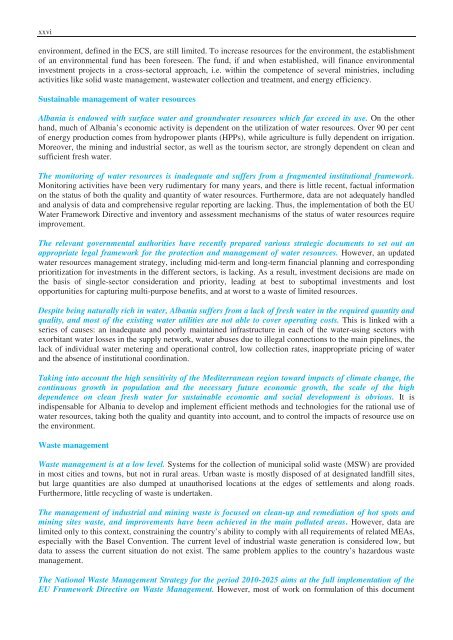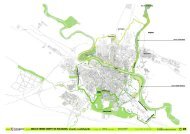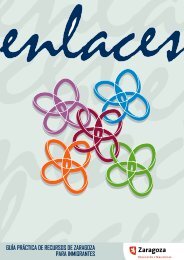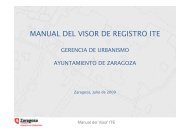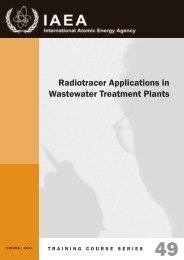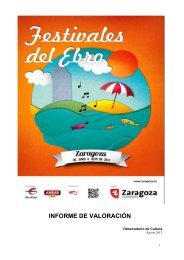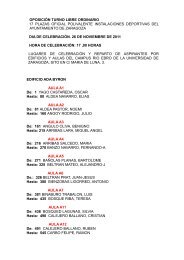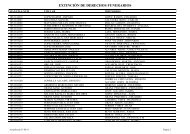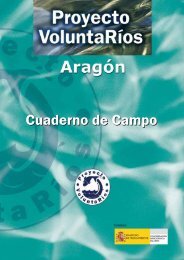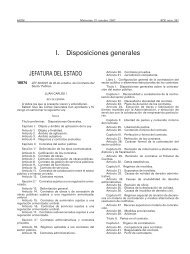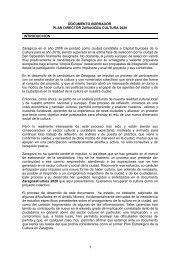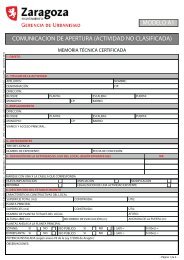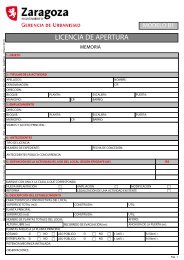Second Environmental Performance Review of Albania
Second Environmental Performance Review of Albania
Second Environmental Performance Review of Albania
You also want an ePaper? Increase the reach of your titles
YUMPU automatically turns print PDFs into web optimized ePapers that Google loves.
xxvienvironment, defined in the ECS, are still limited. To increase resources for the environment, the establishment<strong>of</strong> an environmental fund has been foreseen. The fund, if and when established, will finance environmentalinvestment projects in a cross-sectoral approach, i.e. within the competence <strong>of</strong> several ministries, includingactivities like solid waste management, wastewater collection and treatment, and energy efficiency.Sustainable management <strong>of</strong> water resources<strong>Albania</strong> is endowed with surface water and groundwater resources which far exceed its use. On the otherhand, much <strong>of</strong> <strong>Albania</strong>’s economic activity is dependent on the utilization <strong>of</strong> water resources. Over 90 per cent<strong>of</strong> energy production comes from hydropower plants (HPPs), while agriculture is fully dependent on irrigation.Moreover, the mining and industrial sector, as well as the tourism sector, are strongly dependent on clean andsufficient fresh water.The monitoring <strong>of</strong> water resources is inadequate and suffers from a fragmented institutional framework.Monitoring activities have been very rudimentary for many years, and there is little recent, factual informationon the status <strong>of</strong> both the quality and quantity <strong>of</strong> water resources. Furthermore, data are not adequately handledand analysis <strong>of</strong> data and comprehensive regular reporting are lacking. Thus, the implementation <strong>of</strong> both the EUWater Framework Directive and inventory and assessment mechanisms <strong>of</strong> the status <strong>of</strong> water resources requireimprovement.The relevant governmental authorities have recently prepared various strategic documents to set out anappropriate legal framework for the protection and management <strong>of</strong> water resources. However, an updatedwater resources management strategy, including mid-term and long-term financial planning and correspondingprioritization for investments in the different sectors, is lacking. As a result, investment decisions are made onthe basis <strong>of</strong> single-sector consideration and priority, leading at best to suboptimal investments and lostopportunities for capturing multi-purpose benefits, and at worst to a waste <strong>of</strong> limited resources.Despite being naturally rich in water, <strong>Albania</strong> suffers from a lack <strong>of</strong> fresh water in the required quantity andquality, and most <strong>of</strong> the existing water utilities are not able to cover operating costs. This is linked with aseries <strong>of</strong> causes: an inadequate and poorly maintained infrastructure in each <strong>of</strong> the water-using sectors withexorbitant water losses in the supply network, water abuses due to illegal connections to the main pipelines, thelack <strong>of</strong> individual water metering and operational control, low collection rates, inappropriate pricing <strong>of</strong> waterand the absence <strong>of</strong> institutional coordination.Taking into account the high sensitivity <strong>of</strong> the Mediterranean region toward impacts <strong>of</strong> climate change, thecontinuous growth in population and the necessary future economic growth, the scale <strong>of</strong> the highdependence on clean fresh water for sustainable economic and social development is obvious. It isindispensable for <strong>Albania</strong> to develop and implement efficient methods and technologies for the rational use <strong>of</strong>water resources, taking both the quality and quantity into account, and to control the impacts <strong>of</strong> resource use onthe environment.Waste managementWaste management is at a low level. Systems for the collection <strong>of</strong> municipal solid waste (MSW) are providedin most cities and towns, but not in rural areas. Urban waste is mostly disposed <strong>of</strong> at designated landfill sites,but large quantities are also dumped at unauthorised locations at the edges <strong>of</strong> settlements and along roads.Furthermore, little recycling <strong>of</strong> waste is undertaken.The management <strong>of</strong> industrial and mining waste is focused on clean-up and remediation <strong>of</strong> hot spots andmining sites waste, and improvements have been achieved in the main polluted areas. However, data arelimited only to this context, constraining the country’s ability to comply with all requirements <strong>of</strong> related MEAs,especially with the Basel Convention. The current level <strong>of</strong> industrial waste generation is considered low, butdata to assess the current situation do not exist. The same problem applies to the country’s hazardous wastemanagement.The National Waste Management Strategy for the period 2010-2025 aims at the full implementation <strong>of</strong> theEU Framework Directive on Waste Management. However, most <strong>of</strong> work on formulation <strong>of</strong> this document


